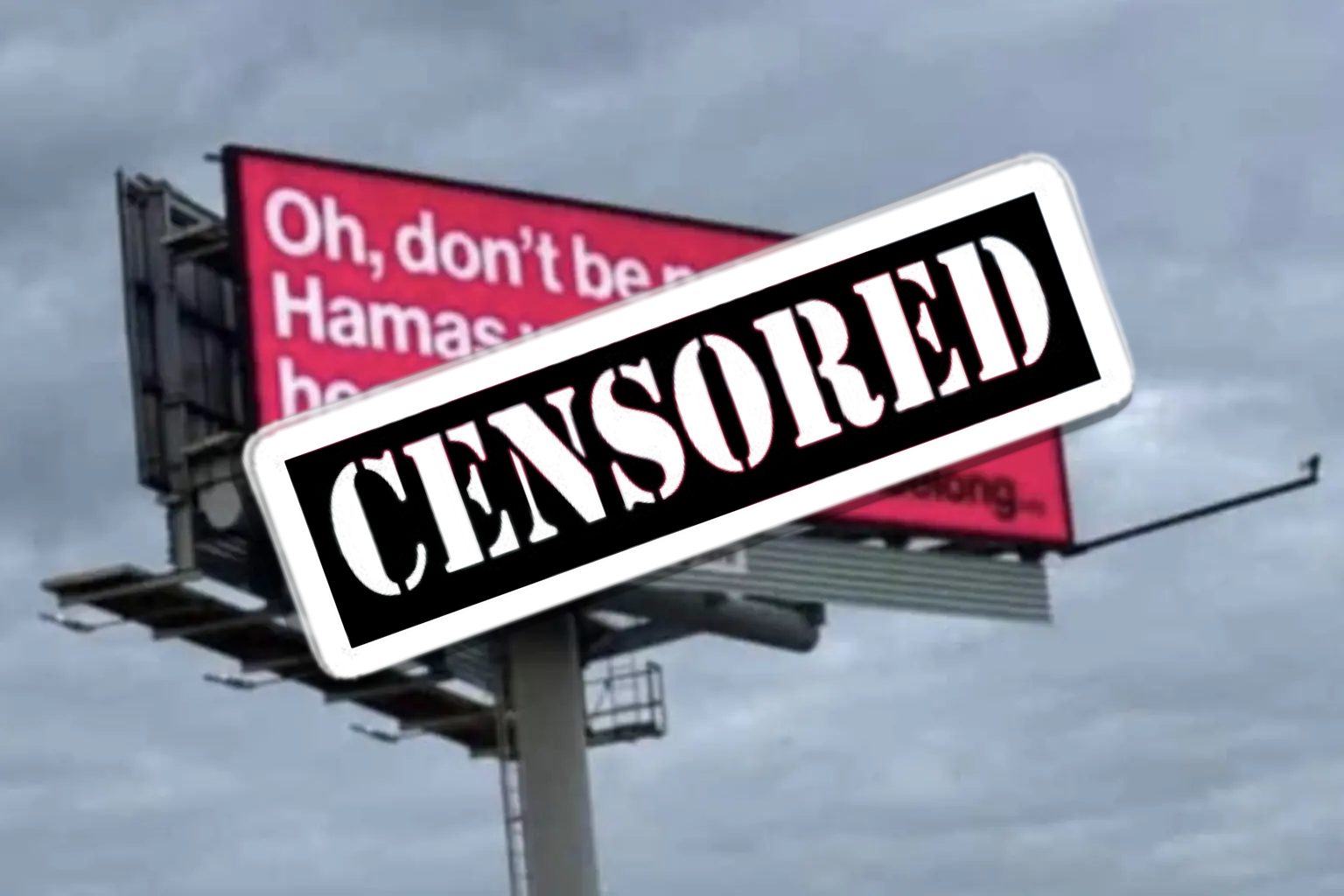In a shocking display of censorship, an anti-Hamas billboard in Bergen County, New Jersey, was forcefully taken down following a wave of complaints to the local police. The audacious sign, which read, “Oh, don’t be naive. Hamas would chop your head off too,” caused quite a stir, leading to over 100 complaint calls logged with the local law enforcement.
This controversial billboard, positioned on Route 80, was the brainchild of JewBelong, an organization that boldly calls out Jew-hate across America. The sign had also recently been the target of vandals in California, further highlighting the contentious nature of its message. But does this controversy justify silencing a voice calling out antisemitism?
The Foundation to Combat Antisemitism, in response to the uproar, posted a photo of the billboard, asserting that it’s not an overreaction to confront antisemitism head-on. Yet, it seems the billboard’s provocative message was too much for some, leading to its premature removal.
Interestingly, the billboard wasn’t on public property, but private land. This raises disturbing questions about freedom of speech and expression. Can private property owners no longer express their views, however controversial, without fear of reprisal?
The Bogota police department, inundated with complaints, assured the community that there have been no threats linked to the billboard. They are currently investigating the matter to ensure everyone’s safety, raising questions about the true nature of these complaints. Were they genuine concerns about safety, or an orchestrated attempt to silence a controversial viewpoint?
The removal of this billboard is an unsettling development in a society that prides itself on free speech and open dialogue. While the billboard’s message might have been provocative, it was undeniably a call to action against a deep-seated societal issue: antisemitism.
While controversy and debate are the lifeblood of a healthy democracy, censorship is a dangerous slippery slope. The removal of the anti-Hamas billboard poses tough questions about where we draw the line on freedom of speech. Will this incident set a precedent for future attempts to silence controversial voices?
As the dust settles on this heated saga, one thing is clear: the conversation around free speech, hate speech, and censorship is far from over. This incident has ignited a fiery debate that will undoubtedly continue to divide opinions across the nation.
The fight against antisemitism must continue, but at what cost? In the end, it’s a balancing act between preserving free speech and maintaining public safety.
Source: New York Post


Leave a Comment